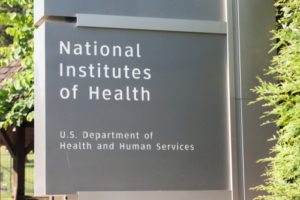
U.S. Rep. Cathy McMorris Rodgers (R-WA) led two other members of the U.S. House Energy and Commerce Committee in requesting information related to oversight by the National Institutes of Health (NIH) of grants having low or de minimis value.
Specifically, the lawmakers seek details about NIH’s handling of audit findings and recommendations, as well as information about such grants, which have a value of $1,000 or less, according to a Nov. 21 letter they sent to NIH Senior Official Dr. Lawrence Tabak, who is currently performing the duties of the NIH director.
“We are interested in learning more about how, and to what extent, institutes and centers are implementing audit recommendations related to misallocated funds,” wrote Rep. McMorris Rodgers, ranking member of the Energy and Commerce Committee, who led E&C Health Subcommittee Ranking Member Brett Guthrie (R-KY) and E&C Oversight and Investigations Subcommittee Ranking Member Morgan Griffith (R-VA) in signing the letter.
Regarding the low-value grants, the lawmakers wrote that such awards have the effect of establishing a relationship between an entity and NIH but with no apparent research value associated with the award itself.
“It is our understanding from reviewing the terms of NIH grant documents that, unless the funds are drawn, the NIH protections, reporting requirements, and activity limitations do not apply to the grantee,” they wrote. “So, the recipient appears to gain the benefit from its association with the NIH without the burden of the requirements. This may pose a risk to NIH, both in reputation and compliance.”
The lawmakers posed several questions for Tabak. For instance, they want to know how many audits have been conducted by NIH’s Office of Management Assessment (OMA) since Jan. 1, 2015, and how many audits OMA has conducted since that time in which it identified a misallocation of funds in an award.
Additionally, Rep. McMorris Rodgers and her colleagues questioned Tabak about the total amount of funds that OMA has found in which NIH was entitled to recovery and, out of that total amount, what total amount of funds were actually recovered, among numerous other questions.



